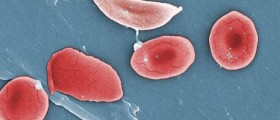
Chronic tiredness is something that most of the people today find very hard to cope with. It is almost a normal complaint of modern men and women but, on the other hand, our busy lifestyles usually do not allow us the opportunity to relax and enjoy some quiet time, and fully rest both the body and the mind. Fatigue is defined by persistent tiredness often accompanied by other specific symptoms. Along with the tiredness, people may experience muscle and joint pain, various cognitive difficulties, mental and physical exhaustion, problems with sleeping, increased sensitivity to light, and often depression. People may even be diagnosed with the chronic fatigue syndrome if they feel these symptoms for a minimum of six months.
Causes of constant fatigue
Often, a real cause behind one’s constant feeling of tiredness is rooted somewhere in the individual’s lifestyle habits. Some people simply do not get enough of the healthy sleep each night and they spend a lot of working hours draining the energy from the body. Fatigue, however, is not the same thing as the sleepiness. Fatigue affects the individual on several levels and typically manifests as sluggishness and lack of motivation to do anything else. Sometimes, it can be a symptom of more serious medical problem, and certainly requires medical attention and examination.
Anemia
This is a condition in which a patient suffers from a total decrease in a number of red blood cells. However, it may also occur when the number of red blood cells is sufficient but the quantity of hemoglobin in the blood is decreased. Hemoglobin is the most important part of a red blood cell that has a unique oxygen-binding ability. It carries the oxygen from the lungs to the tissues, supplying the living cells with this necessary element. Anemia leads to a lack of oxygen in the organs, which provokes a wide range of clinical consequences, including fatigue.
Diabetes
This condition is characterized by high blood sugar levels. It occurs either because the body does not produce enough insulin, or because cells do not respond to the insulin that is produced. However, the insulin has an important role to use the glucose (sugar) from the blood and use it to produce the energy that fuels the body. If something is wrong in this process, the body is deprived of energy and the person feels constantly tired.
Hypothyroidism
This is a condition in which the thyroid gland, normally engaged in regulation of the body’s metabolic rate, is affected in such a way to produce less hormones. Lack of thyroid hormones usually slows down all of the body functions and makes the patient feel constantly tired.

















Your thoughts on this
Loading...